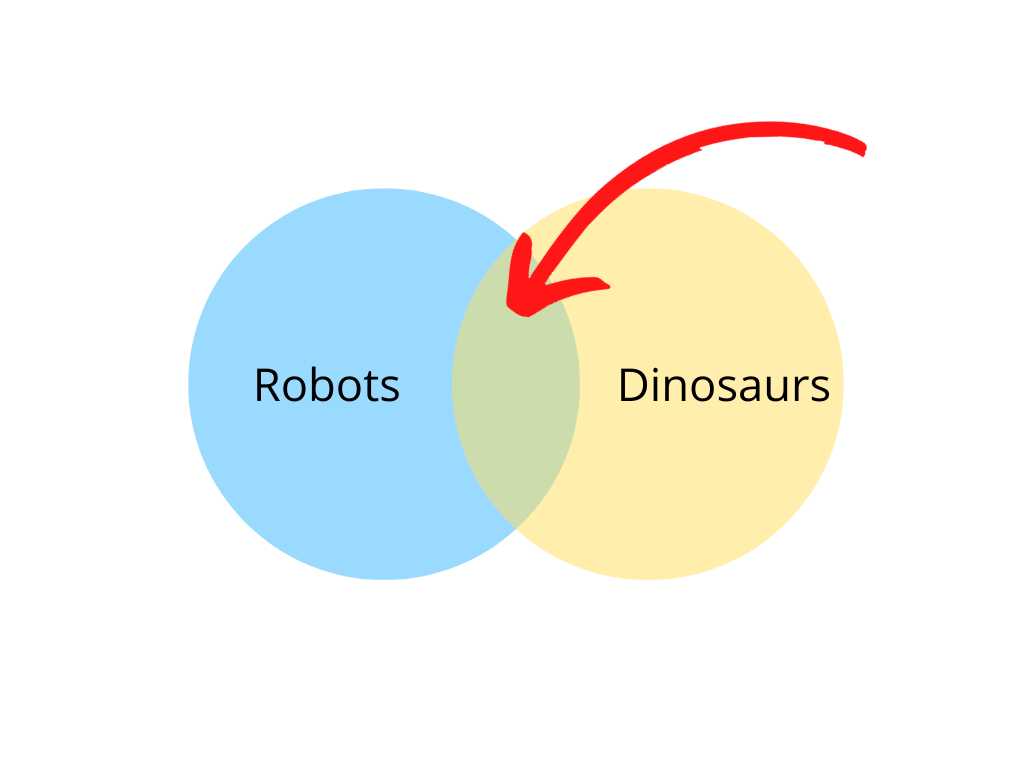The following posts have been individually constructed from my personal teaching philosophy document. This post is part 7 in my teaching philosophy series.
To date, I have published:
- Part 1, My introduction
- Part 2, Navigating my path to university
- Part 3, Pursuing university via the Enriched Support Program
- Part 4, Life after graduation
- Part 5, Exploring experiential learning and creative thinking
- Part 6, Shaky foundations
This approach often elicits laughter when I introduce it to first-year instruction. Nevertheless, its effectiveness in keeping students engaged is undeniable. A library session discussing robots and dinosaurs becomes an unforgettable experience. This marked a significant milestone in my journey towards enhancing information literacy. I dedicated the summer of 2022 to its development and began implementing it in classrooms in the fall of 2023. Venturing into the classroom with this innovative approach was a daunting prospect, as it deviated considerably from the traditional framework of library instruction at my institution.

However, this approach has garnered significant approval from faculty, who find students can grasp the concepts more easily. I remember using this technique, first in an Enriched Mini Courses Program in 2022. I introduced students to the concept of Boolean Operators and they seemed genuinely intrigued by the search for “robots and dinosaurs”. My lesson around Boolean Operators in this manner has also been adopted by other members of the Research Support Services staff at Carleton University Library. An unforeseen yet gratifying outcome of such an approach is that English as a Second Language classes find these concepts simple and accessible for acquainting students with essential research skills.
Not only do I use this in first-year instruction, I have begun using it in upper-year classes. It continues to garner approval from faculty in upper-year courses as well. This returns to the notion I mentioned earlier, it doesn’t matter how good the advanced search skills we provide to students, if the foundational skills are flawed, the final product will be in jeopardy of being a failure.
Lesson 9: Regardless of the quality of advanced research instruction, if foundational skills are lacking or flawed, the final product is at risk of being a failure.
Header photo by Lucas George Wendt on Unsplash
My teaching philosophy was designed and influenced by the guide from Western University’s Centre for Teaching and Learning titled Writing a teaching philosophy statement.

